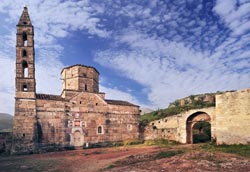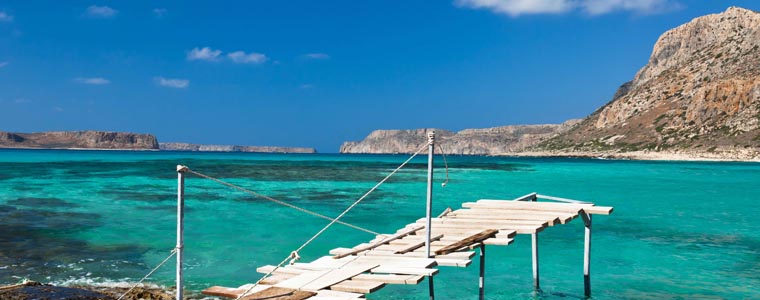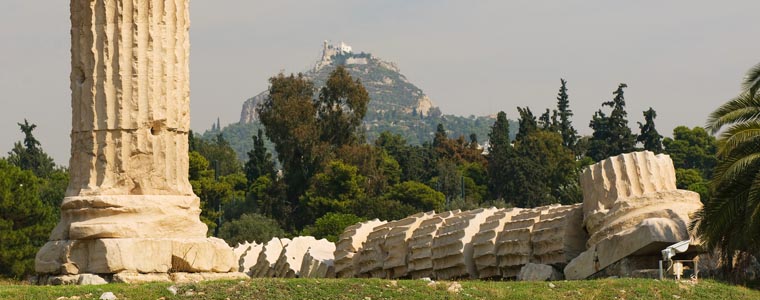- Vacation in Greece
- Family holidays
- Travel insurance
- Tours and Guided Tours
- Packages & Offers
- Sailing Greece
Greek history
History of Greece, mythology and ancient times in Greece
Holidays in Greece and Greece accommodation through a complete Travel Guide for Greece and the Greek islands. Find information on Greece and a list of Greek hotels, studios, apartments and villas for all budgets. Plan your holidays in Athens City, Greece.


The history of Greece is long and colorful spanning some 5,000 years of recorded history. The Greek people more correctly called Hélène’s are a product of the changes that have taken place in that time span. In fact, such were the variety the areas occupied by the Greeks and its occupiers throughout history making its history a kaleidoscope. Each era through the ages has its own related sphere of interest.
The first Hellenic (Ionic) speaking tribes arrived in the Greek mainland between the late 3rd and the first half of the 2nd millennium BC. Since then, the Hellenic civilization spread from Greece as far as Pakistan with Alexander the Great during his conquests. Over the centuries Greek minorities have remained in former Greek territories and almost 10 million Greek emigrants have been assimilated into societies across the globe. Another 10 million more live in the modern state of Greece (independent since 1821) and Cyprus.
It is generally accepted that modern western society has its roots in ancient Greece which once conquered by the Romans adopted its ways entirely and promoted its proliferation through their own expansion into Europe with a distinctly Roman twist.
In 1453 the fall of Constantinople and the Byzantine Empire (after 1,123 years - the single longest reigning empire in history) ushered in the rise of the Ottoman Empire of which Greece was an occupied territory.
After the Greek Revolution (the War of Independence) successfully waged against the Ottoman Empire from 1821 to 1829, the budding Greek state supported by Britain, Germany, France and Russia, was finally recognized under the London Protocol.
A succession of foreign kings who were installed by the European powers; were finally succeeded by the first modern democracy In 1877, with Charilaos Trikoupis at its head who is attributed with the significant improvement of the country's infrastructure. He is also noted for having curbed the power of the monarchy to interfere in the assembly by issuing the rule of vote of confidence to any potential prime minister.
As a result of the later Balkan Wars, Greece its territory and population were increased under a charismatic Prime Minister Eleftherios Venizelos. In the years following, the differences between King Constantine I and Eleftherios Venizelos over the country's foreign policy on the eve of World War I dominated the country's political scene, and divided the country into two opposing groups those pro German under the king and those pro British.
After WWI, Greece fought against Turkish nationalists led by Mustafa Kemal, a war which resulted in a massive population exchange between the two countries under the Treaty of Lausanne.
On 28 October 1940 Fascist Italy demanded the surrender of Greece. Greek dictator Ioannis Metaxas refused and in the resulting Greco-Italian War, Greece repelled the Italian forces into Albania, offering the Allies their first victory over Axis forces on land. Greece would eventually fall to urgently dispatched German forces sent to support the Italian forces during the Battle of Greece.
Upon liberation, Greece experienced a bitter civil war between communist and anticommunist forces, which led to economic devastation and severe social tensions between rightists and largely communist leftists for the next 30 years.
In July 1965 King Constantine's dismissal of then Premier George Papandreou's centrist government prompted a prolonged period of political turbulence which culminated in a coup d'état on 21 April 1967. Seven years later amid political strife, on 20 July 1974, Turkey invaded the island of Cyprus and the regime collapsed and whereupon former premier Constantine Karamanlis was invited back from self-exile in Paris since 1963, marking the beginning of the Metapolitefsi era.
On January 1st, 1981 and during the government of Constantine Karamanlis, Greece became the tenth member of the European Communities (subsequently succeeded by the European Union) and since then the country has adopted the Euro in 2001 and successfully hosted the 2004 Olympic Games in Athens.


The history of Greece is long and colorful spanning some 5,000 years of recorded history. The Greek people more correctly called Hélène’s are a product of the changes that have taken place in that time span. In fact, such were the variety the areas occupied by the Greeks and its occupiers throughout history making its history a kaleidoscope. Each era through the ages has its own related sphere of interest.
The first Hellenic (Ionic) speaking tribes arrived in the Greek mainland between the late 3rd and the first half of the 2nd millennium BC. Since then, the Hellenic civilization spread from Greece as far as Pakistan with Alexander the Great during his conquests. Over the centuries Greek minorities have remained in former Greek territories and almost 10 million Greek emigrants have been assimilated into societies across the globe. Another 10 million more live in the modern state of Greece (independent since 1821) and Cyprus.
It is generally accepted that modern western society has its roots in ancient Greece which once conquered by the Romans adopted its ways entirely and promoted its proliferation through their own expansion into Europe with a distinctly Roman twist.
In 1453 the fall of Constantinople and the Byzantine Empire (after 1,123 years - the single longest reigning empire in history) ushered in the rise of the Ottoman Empire of which Greece was an occupied territory.
After the Greek Revolution (the War of Independence) successfully waged against the Ottoman Empire from 1821 to 1829, the budding Greek state supported by Britain, Germany, France and Russia, was finally recognized under the London Protocol.
A succession of foreign kings who were installed by the European powers; were finally succeeded by the first modern democracy In 1877, with Charilaos Trikoupis at its head who is attributed with the significant improvement of the country's infrastructure. He is also noted for having curbed the power of the monarchy to interfere in the assembly by issuing the rule of vote of confidence to any potential prime minister.
As a result of the later Balkan Wars, Greece its territory and population were increased under a charismatic Prime Minister Eleftherios Venizelos. In the years following, the differences between King Constantine I and Eleftherios Venizelos over the country's foreign policy on the eve of World War I dominated the country's political scene, and divided the country into two opposing groups those pro German under the king and those pro British.
After WWI, Greece fought against Turkish nationalists led by Mustafa Kemal, a war which resulted in a massive population exchange between the two countries under the Treaty of Lausanne.
On 28 October 1940 Fascist Italy demanded the surrender of Greece. Greek dictator Ioannis Metaxas refused and in the resulting Greco-Italian War, Greece repelled the Italian forces into Albania, offering the Allies their first victory over Axis forces on land. Greece would eventually fall to urgently dispatched German forces sent to support the Italian forces during the Battle of Greece.
Upon liberation, Greece experienced a bitter civil war between communist and anticommunist forces, which led to economic devastation and severe social tensions between rightists and largely communist leftists for the next 30 years.
In July 1965 King Constantine's dismissal of then Premier George Papandreou's centrist government prompted a prolonged period of political turbulence which culminated in a coup d'état on 21 April 1967. Seven years later amid political strife, on 20 July 1974, Turkey invaded the island of Cyprus and the regime collapsed and whereupon former premier Constantine Karamanlis was invited back from self-exile in Paris since 1963, marking the beginning of the Metapolitefsi era.
On January 1st, 1981 and during the government of Constantine Karamanlis, Greece became the tenth member of the European Communities (subsequently succeeded by the European Union) and since then the country has adopted the Euro in 2001 and successfully hosted the 2004 Olympic Games in Athens.
JOIN VACATION-GREECE.COM
If you are a HOTEL OWNER IN GREECE and wish to enter this catalogue, please read more about how to become a member and add your accommodation information.
Travel in Greece
Traditional Cottages in Greece and the Greek islands







